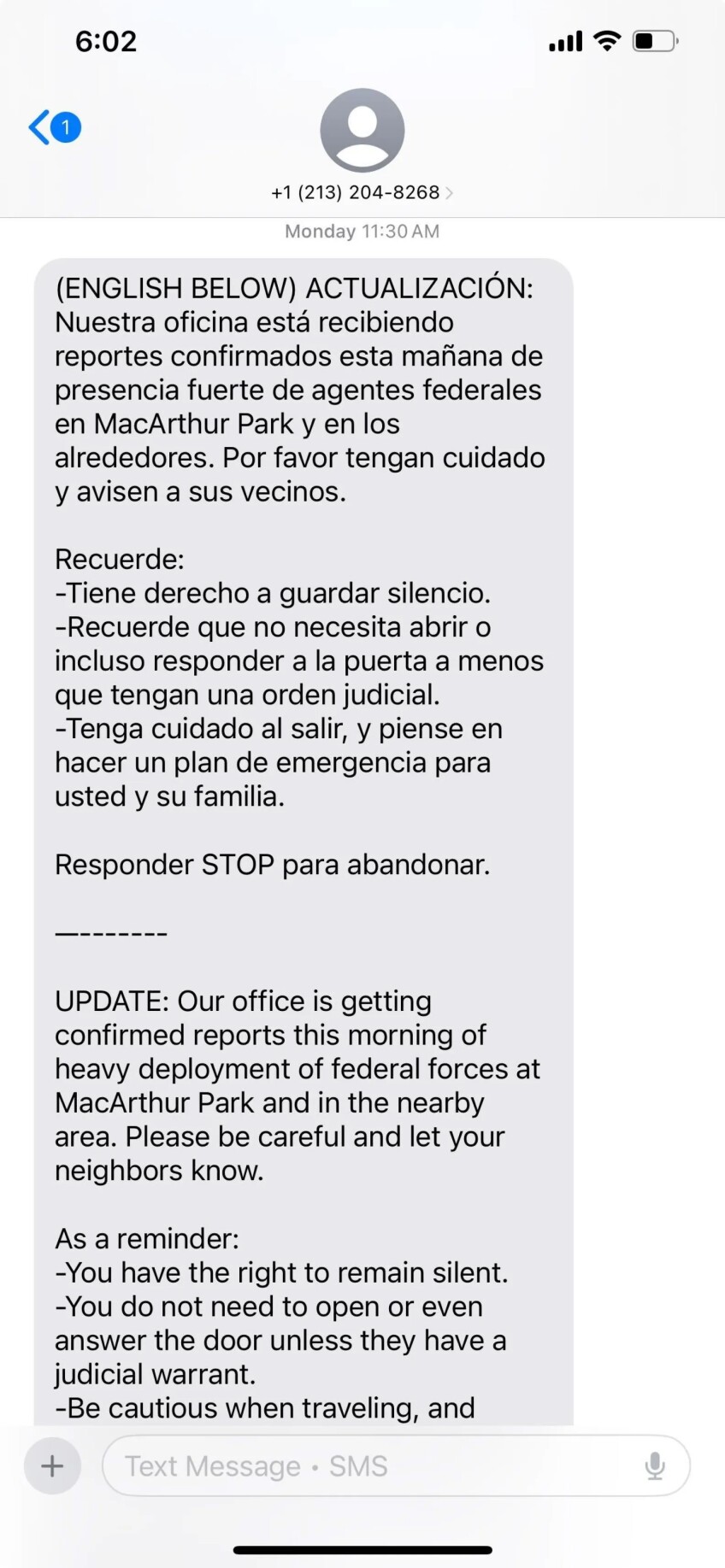Families Are Losing Internet Access as Immigration Sweeps Further the Digital Divide

This article was originally published July 18, 2025 on laist.com.
Undocumented and mixed status families are among those most hurt by digital inequities and already struggle to connect online to resources and opportunities. But the ongoing immigration enforcement sweeps in Southern California can further push them away from internet access, advocates say.
Immigrant communities are among the most affected by digital inequities — either because of a lack of affordability, digital devices or local infrastructure that can sustain modern internet speeds.
Advocates say the widening digital divide is severely limiting people’s ability to prepare, access legal resources, connect with loved ones who have been detained, and stay informed about their rights.
“You're going to see a disproportionate impact on those communities in terms of access to information, critical minute-by-minute,” said Cristal Mojica, a digital equity expert at Michelson Center for Public Policy.
That's because most resources are housed online, Mojica said.
“It's a huge challenge in a situation that's already really isolating for these communities,” she said. “Those community members are having to stay home because they're afraid, whether they are documented or not.”
How did we get here?
Along with a lack of devices and infrastructure, the biggest barrier to reliable connectivity is affordability.
Natalie Gonzalez, deputy director of the California Community Foundation's Digital Equity Initiative, said some internet bills cost at least $200 per month for some families.
The Affordable Connectivity Program, a federal subsidy program that helped connect low-income residents to the internet, expired last year. Without it, Mojica said, there are no longer programs to support low-income families with their internet subscriptions.
The program’s end forced families to make “tough decisions around whether they could continue to afford the internet plans that they had signed up for,” Mojica said.
Now, family members are choosing to stay home from work for fear of federal immigration enforcement, Gonzalez said.
“It's really tough,” Gonzalez said. “I heard a few parents share that they're trying to figure out where to cut costs, and unfortunately, the internet is sometimes on that list.”
Other resources for free digital access, like public libraries, are also further out of reach.
Mojia said these places for secondary resources no longer feel safe for undocumented and mixed-status families.
“This digital sanctuary is no longer accessible to people, so it's just another element to this broader challenge,” she said.
Reaching disconnected residents

L.A. Councilmember Eunisses Hernandez’s office has used text message bursts to inform members of her district of local ICE enforcement and of their rights.
Hernandez said the text service was initially meant to help with city services, but didn’t expect to use it for immigration alerts.
The city attorney approved the message language, Hernandez said.
“In no way are we trying to obstruct federal immigration enforcement, but we do have a responsibility as a city to make sure that our constituents know their rights,” Hernandez said.
The program was designed as a way to reach renters, Hernandez added, especially those in the south of her district, where some homes don’t have reliable internet.
Digital equity has been at the forefront of her mind since the pandemic, she added.
“I've been having conversations with our bureau of street lighting to see what are the possibilities of being able to have Wi-Fi be released from our lighting system. We're working with our rec and parks department to bring Wi-Fi to MacArthur Park,” Hernandez said. “I'm looking to the advocates for guidance on this, so that we can work together on it.”
Mojica said local and state leaders can directly improve connectivity by pushing policies that help more people reach the internet.
“Passing good policy that is actually going to address why folks do not have this access. (It) is clearly making a devastating situation even more difficult or unnavigable for so many families in California,” she said. “The challenge is not just devices, and it's not just affordability. It has all these different components, and we need people working on all of them.”

